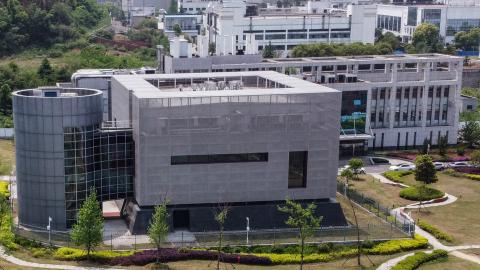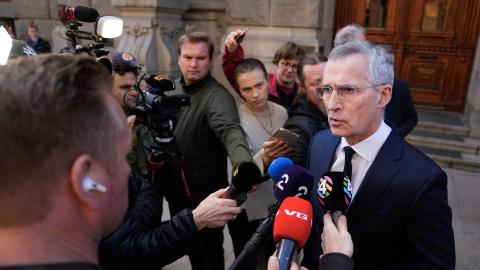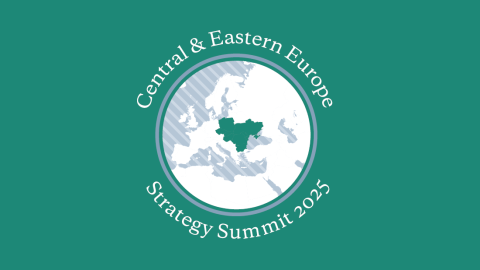On April 2, an urgent appeal was sent to the director-general of the World Health Organization ( WHO ). It was signed by Bassam Said Ishak, co-chief of the US Mission of the Syrian Democratic Council (SDC) and two colleagues, pleading for test kits to detect coronavirus infections in war-torn northeastern Syria
The SDC region is facing increasingly horrific circumstances. On March 31, AANES Health Committee reported that Turkey is “using the distraction caused by the pandemic to once again threaten military strikes and a subsequent invasion further into north and east Syria. (They are already occupying a large part of the region.) These threats are disrupting the region’s ability to respond to the pandemic.”
On April 4, Rudaw reported that the Turkish Army had “’neutralized’ tens of fighters from the Kurdish-led Syrian Democratic Forces (SDF) in days of clashes in northern Syria, despite the country’s agreement to two ceasefires in the area last October.
Across northeastern Syria, warnings about the virus have been distributed and shelter-in-place guidance has been issued. Anxiety is intense, in large part thanks to the massive numbers of displaced persons in the region, many of them crowded into ramshackle camps. Survival is difficult even without the threat of viral infection.
Of course, topping the list of instructions for COVID-19 prevention is hand washing and personal cleanliness – number one priorities in preventing COVID-19. But now these simple acts have become increasingly difficult in the communities of Hassake and Tal Tamer, where Turkish-backed forces now control the main source of the water supply and recently attacked the water lines to the cities.
The local population is struggling to find clean water simply for drinking and cooking – much less for hand washing. The situation is worst for the IDPs in collective shelters and in the camps. According to a Kurdish source, there are about 1.5 million IDPs from inside Syria, and about 300,000 who fled from the last Turkish invasion.
The AANES report explains that the health system infrastructure in north and east Syria (NES) “has deteriorated as a result of the ongoing crisis in Syria, which started more than nine years ago. The health situation worsened after the closure of al-Yaroubiah border crossing with Iraq, which was used by the UN to deliver medical and humanitarian aid to NES. Currently, the medical supplies in NES are insufficient to confront any possible outbreak of the coronavirus pandemic, which requires huge resources.”
Months before the threat of coronavirus, while I was researching religious freedom in Syria, I spoke to Elizabeth Kourie, who represents the Syriac Christian humanitarian group Syria Cross (www.syriaccross.com) and the Democratic Autonomous Administration of North and East Syria (DAA). She explained that the living conditions in their region began to deteriorate immediately and suffering began when US troops began their withdrawal in October 2019.
She explained that within three days of the US decision, Turkish troops began moving south across the Turkey-Syria border and bombing all along that stretch. They attacked anybody who was there; their targets were not military. Civilians were killed and wounded. Christians and Kurds were the primary victims.
“One of the first bombs that came from Turkey,” Kourie told me, “struck a Syriac Christian house in Qamishli, severely injuring parents and their children. Our people were very much afraid. We knew that Turkey was coming with its Sunni jihadist mercenaries. We faced them a year ago in Afrin. We faced them in the history of the Ottoman Empire. We have had experience with Turkey with a couple of genocides, the largest being 1915. We know that if Turkey is coming, it’s coming with jihadists. And we know that we Christians will be targeted more than anyone else.”
Now, with the spread of COVID-19 across the Middle East, those communities are facing double jeopardy: Turkish terror and attacks on non-Islamist religious groups and a pandemic for which – through no fault of their own – they are almost completely unprepared.
Shai Fund, a small humanitarian organization based in Tel Aviv, has delivered seven pallets of pharmaceutical and medical supplies to those beleaguered communities since December, and more help is on the way. So far, basic supplies have reached cities with mixed populations, including Syriac Christian, Kurds and Arabs. But it is far from simple or inexpensive even to transport donated medications into the area.
Much more difficult is preparing for the inevitable arrival of COVID-19. I asked Shai Fund director, Charmaine Hedding about test kits.
“There are simply no test kits available,” she told me. “It’s even been a challenge for Israel to find them.”
And where could testing could be done if kits could be provided? “That’s not so difficult,” she said, “because there are still some privately owned medical facilities operating. But treatment there is expensive – and completely unaffordable to many local people, and especially the unemployed.”
Meanwhile, some free clinics and pharmacies still offer help, but they are open only a few hours a day. To make matters worse, there is an acute shortage of doctors. Since the war began, according to local sources, 60% of them fled northeastern Syria, while the populations of IDPs in camps have grown exponentially.
The reality is that COVID-19 may become as threatening to life in northeastern Syria as the relentless attacks by Turkey’s well-armed troops. Those who become sick enough to need medical care – and especially the critically ill – will face nearly insurmountable obstacles. A few may be transferred to Damascus, but there will be many fatalities.
Right now Bassam Ishak, Elizabeth Khourie and Charmaine Hedding and so many others like them – with hearts set on humanitarian assistance and religious freedom – will continue to work tirelessly for the besieged people of northeastern Syria.
In the meantime, Turkey’s President Recep Tayyip Erdogan will not cease his aggression against the Christians and Kurds in the region. He will continue to maim, kill and destroy. And he will do so until he is powerfully and permanently stopped in his tracks.
Read in The Jerusalem Post



















